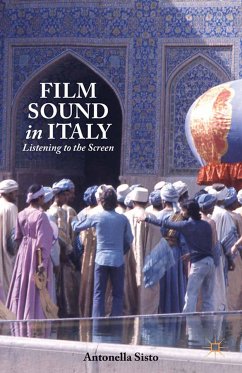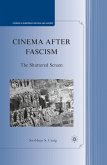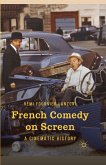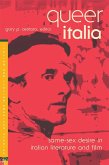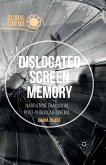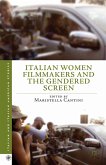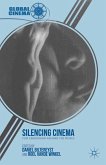Dieser Download kann aus rechtlichen Gründen nur mit Rechnungsadresse in A, B, BG, CY, CZ, D, DK, EW, E, FIN, F, GR, HR, H, IRL, I, LT, L, LR, M, NL, PL, P, R, S, SLO, SK ausgeliefert werden.
"Antonella Sisto's study taught me to think about sound in ways far deeper and more sophisticated than I had ever considered possible. This probing investigation of the uses and abuses of dubbing in Fascist cinema, neorealism, as well as in the works of Antonioni and Pasolini, offers new insights into areas so exhaustively studied as to defy new critical inroads. A major contribution to scholarship, Film Sound in Italy will also find enthusiastic readers among lay connoisseurs of the Seventh Art. - Millicent Marcus, Professor, Italian and Film Studies, Yale University, USA
"This book implicates the study of Italian Cinema within the broader aural turn of recent film studies and courageously devises a special kind of auscultation for Italian sound film. The effect is striking: like the sudden turning off of the mute button, it opens our ears to the reverberations of history and ideology." - Alessandra Campana, Associate Professor, Musicology, Tufts University, USA
"Film is an 'audiovisual medium' but it has long been a truism to note that far more attention has been paid in film studies to the 'visual' part of the hybrid formula than to the 'audio' party. There are exceptions, especiallyin the area of film music, but the general truth still holds. Antonella Sisto's rich new book is a part of a small but important wave of work that vigorously contests this sensory one-sidedness, programmatically calling on us to 'listen' to the screen as much as we 'watch' it and to acknowledge the multifaceted, indeed transformative impact of the aural/oral on everything we think we know about the medium . . . She makes a good case for the particularities of the Italian industry and its cultural history as illuminating of the whole set of general historical, political, and theoretical issues swirling around the field of film sound" - Viewfinder
"Sisto's book is thought-provoking and enlivened by a highly compelling writing style. It stimulates in the reader a keen curiosity to know more about the still mostly untold histories of film sound in Italy." - Journal of European Studies

